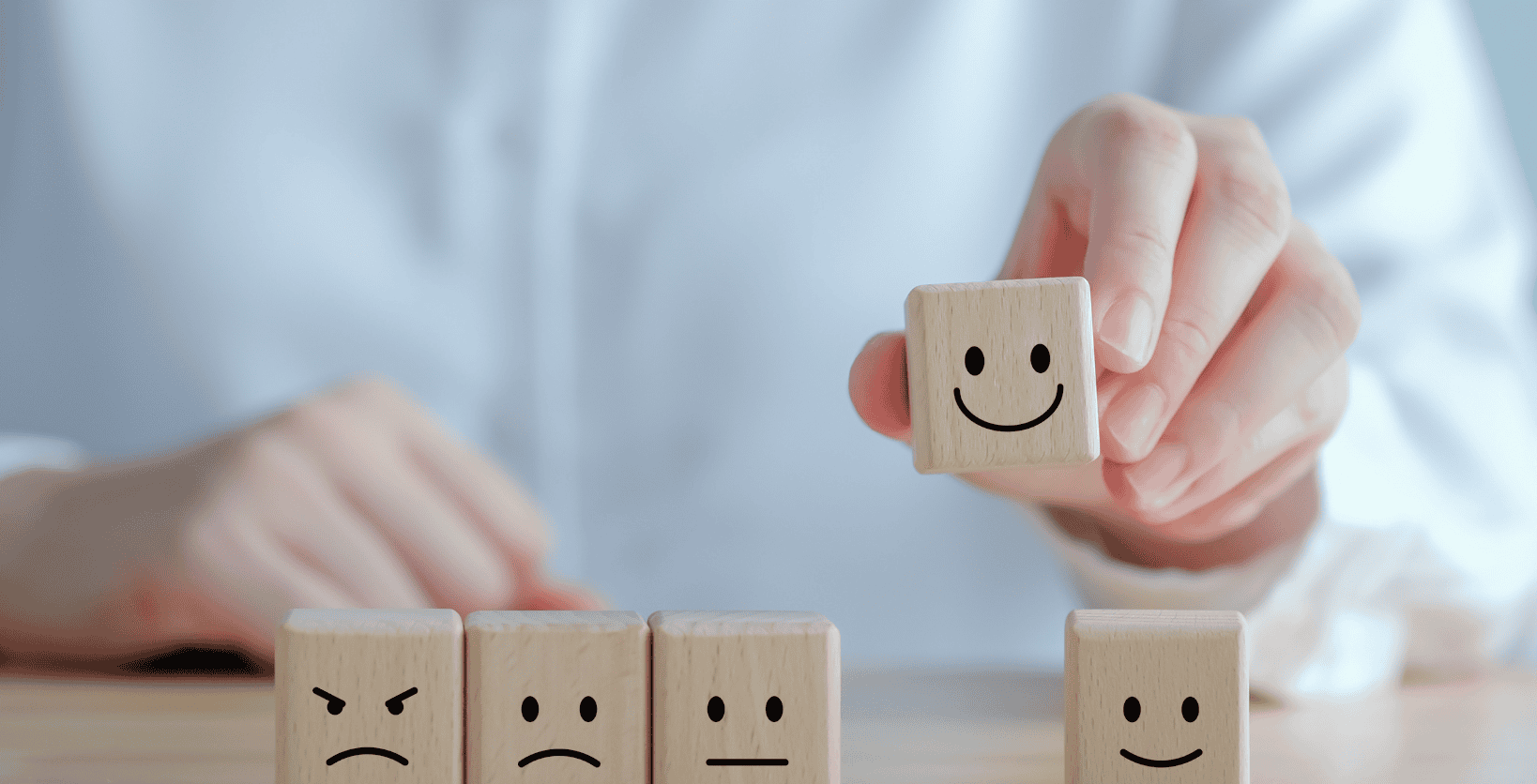- What Does Mental Health Mean?
- Is Mental Health Different From Mental Illness?
- 6 Tips for Taking Care of Your Mind
May is Mental Health Awareness Month, which serves as a reminder to prioritize our mental well-being. According to the World Health Organization, around 1 in 4 people will experience a mental health issue at some point in their lives. This means that among your family, friends, and colleagues, there is a high likelihood that at least one person is struggling and needs help with their mental health.
At WeCare Pharmacy, we recognize the impact mental health issues have on a person’s life. It is important to prioritize our overall well-being by caring for our physical and mental health. We will emphasize the significance of mental health awareness and provide useful tips for maintaining a healthy mind.

What Does Mental Health Mean?
It may seem silly to go back to the basics when it comes to mental health, but if you haven’t had a moment to check in with yourself and think about your mental health, now is the time to seek support and talk to people close to you.
So what does saying, “taking care of your mental health mean?” According to experts in the UAB Medicine Office of Wellness and the Center for Disease Control and Prevention (CDC), mental health is your state of emotional, psychological, and social well-being.
Mental health impacts how individuals think, feel, and behave every day, and when you start to feel “off” or make decisions that aren’t like you, it could be because of stress on mental health.
It’s essential to check in with yourself at every stage of life and even talk to a therapist for advice or more advanced help. Sometimes, treatment may go beyond therapy, but that’s your choice. If you are feeling stressed, stuck, or simply exhausted due to mental health, talk to a therapist about what’s going on.

Is Mental Health Different From Mental Illness?
Yes, mental health and mental illness are different but similarly used to describe how we’re feeling. While your mental health will always be there and may be positive or negative, mental illness has a different effect on a person’s ability to function and live over more extended periods. Mental illness is not the same as feeling sad, unhappy, or stressed because of difficult situations.
Like physical health, feeling sick or unwell without a specific disease or illness is possible. However, even though you are feeling negative emotions, it doesn’t necessarily mean you have a mental illness. You can have poor mental health but not a mental illness.
On the flip side, a staggering one in five Americans lives with a mental illness—a diagnosable condition that influences thinking, emotions, and behaviors. Of that, one in 24 has a severe mental illness such as bipolar disorder, schizophrenia, or major depressive disorder. One in 12 has a diagnosable substance use disorder.
Like body (physical) illnesses, brain (mental) illnesses can be treated and affect anyone. A mental illness does not mean a person has poor well-being. A person can have a mental illness and still experience positive physical, emotional, occupational, and social wellness. What is important is that we care for our mental health the same way we care for other components of our well-being.

6 Tips for Taking Care of Your Mind
1. Get More Sleep
Disruptions in sleep patterns are a common symptom associated with various mental health conditions, from anorexia nervosa to generalized anxiety disorder. The impact of sleep disturbances can vary across different mental health disorders. For instance, while insomnia is a common issue for those experiencing depression, some individuals with depression may sleep excessively or feel fatigued throughout the day.
Establishing a consistent sleep routine is one effective strategy to prioritize mental health. This involves going to bed and waking up simultaneously each day, even if you struggle with insomnia. Over time, this consistency can help train your body’s natural sleep-wake cycle. Limiting exposure to distractions like screens or bright lights before bedtime can create an environment more conducive to falling asleep and staying asleep throughout the night. Maintaining a regular sleep schedule can positively impact your overall mental well-being.
2. Nourish Your Spirit and Body
The concept of “mental” health can be misleading, as it suggests a focus solely on the mind. While therapeutic tools like therapy, CBT, and DBT are essential for clarifying thoughts and behaviors, mental health encompasses the whole person—the mind, body, and soul.
As eating disorder treatment specialists, we emphasize the significance of intuitive and nourishing eating. Evidence from clinical trials and psychological experts demonstrates how our dietary habits affect brain function and overall physical well-being. The mind cannot function optimally when the body is deprived of proper nourishment. We are learning to eat well and to eat when truly hungry is a core component of eating disorder recovery and can benefit anyone seeking to improve their mental health.
Furthermore, the role of the “soul” cannot be overlooked. This aspect is more challenging to define, but mental health care must acknowledge the impact of our emotions and life experiences. Nourishing the soul may involve engaging in meaningful activities, such as visiting a garden, creating art, or spending quality time with loved ones. Integrating such “soulful” practices into one’s daily routine can positively influence mental well-being.
A comprehensive approach to mental health should address the interconnected needs of the mind, body, and soul rather than solely focusing on the cognitive realm. Individuals can holistically enhance their overall mental health and well-being by attending to all these aspects.
3. Be Open to Help
The core purpose of Mental Health Awareness Month is to foster open and comfortable discussions about mental health. Despite the prevalence of mental health conditions, many communities remain hesitant to address these important issues openly. If you’re using this month as an opportunity to focus on your mental well-being, resolving to ask for help when needed is an excellent first step.
This openness to discussing mental health must go both ways. While no one should feel obligated to provide emotional labor beyond their capacity, offering support to others can be a meaningful way to boost mental health. True awareness also involves considering the needs of those around you. If someone seeks assistance, do what you can to provide a compassionate ear and helpful guidance.
Seeking help doesn’t have to be limited to personal relationships, either. Reluctance to access professional mental health services can be just as strong as hesitation to discuss these topics with friends and family. This month’s heightened focus on mental health awareness presents an opportunity to strengthen your resolve to seek professional care when needed. Take advantage of the increased societal attention to mental well-being and take that first step towards getting the required support.
4. Take Time for Yourself
It’s easy to get caught up in the drive to push ourselves to the limit, whether in our academic, professional, or personal pursuits. However, it’s essential to remember the importance of taking breaks and engaging in self-care activities. These little moments of respite are crucial for maintaining our mental balance.
Try disconnecting from digital devices like computers and phones during these self-care moments. Instead, engage in activities that allow you to focus solely on yourself, such as watching a favorite movie, going for a bike ride, or simply closing your eyes and being present. These practices share a similar purpose to mindful meditation, which experts widely recommend as a valuable tool for addressing various mental health conditions.
It’s important to recognize that these self-care breaks are not a luxury but a necessity. By carving out time to recharge and attend to our well-being, we can better manage the demands of our daily lives and maintain a healthy, balanced approach to our mental health recovery or other focus areas. Remember, taking these small steps to prioritize self-care can profoundly impact our overall mental and emotional well-being.
5. Head Outside or Exercise to Energize Your Body
Beyond nourishing the mind and soul, mental health experts also emphasize the importance of caring for the physical body through time outdoors. Getting fresh air can have a profoundly positive impact on mental well-being.
Regular walks, even for just a few minutes during the day, can help relieve stress and improve circulation, providing a simple form of physical activity. Moreover, exposure to sunlight has been shown to have cognitive benefits. A 2009 study found a correlation between lower sunlight levels and an increased probability of cognitive impairment among individuals with depression.
Just as proper nutrition is crucial for brain function, adequate sunlight exposure can contribute to more efficient brain activity. Incorporating time in natural light and fresh air should be integral to a comprehensive mental health care regimen. This holistic approach, addressing the needs of the mind, body, and soul, can make a meaningful difference in one’s overall mood and mental well-being.
6. Avoid Using Social Media
While social media can serve certain purposes, there is growing awareness of the potential harm it can pose to mental health, particularly for vulnerable populations like adolescents. Recent Congressional hearings have highlighted the negative impact social media can have on body image and self-esteem, mainly driven by platforms like Facebook and Instagram.
Limiting time spent on social media is often recommended for those prioritizing their mental health. If avoiding it altogether is not feasible, try to restrict usage to just a few minutes per day, and be mindful of steering clear of content that may be triggering or sensitive. For example, someone recovering from an eating disorder may want to avoid “fitness” accounts or weight-loss discussions on social media.
Instead, it is advisable to focus energy on real-world activities and entertainment that foster a sense of well-being rather than relying on the often curated and potentially harmful content on many social media platforms. By being intentional about social media consumption, individuals can mitigate the potential negative impacts and prioritize their mental health.

6 Tips for Taking Care of Your Mind
Caring for your mental health goes hand in hand with eating three square meals daily and ensuring you drink water. It’s a necessity! If you choose to talk to someone about your mental health, make sure to pick a doctor you trust or even select a specialist if dealing with specific issues that could be linked to ADHD or anxiety.
Mental Health Awareness Month reminds us to prioritize our mental well-being. Following these tips and seeking help when necessary can promote your mental health and live a fulfilling life. At WeCare Pharmacy, we’re committed to supporting you on your mental health journey.

